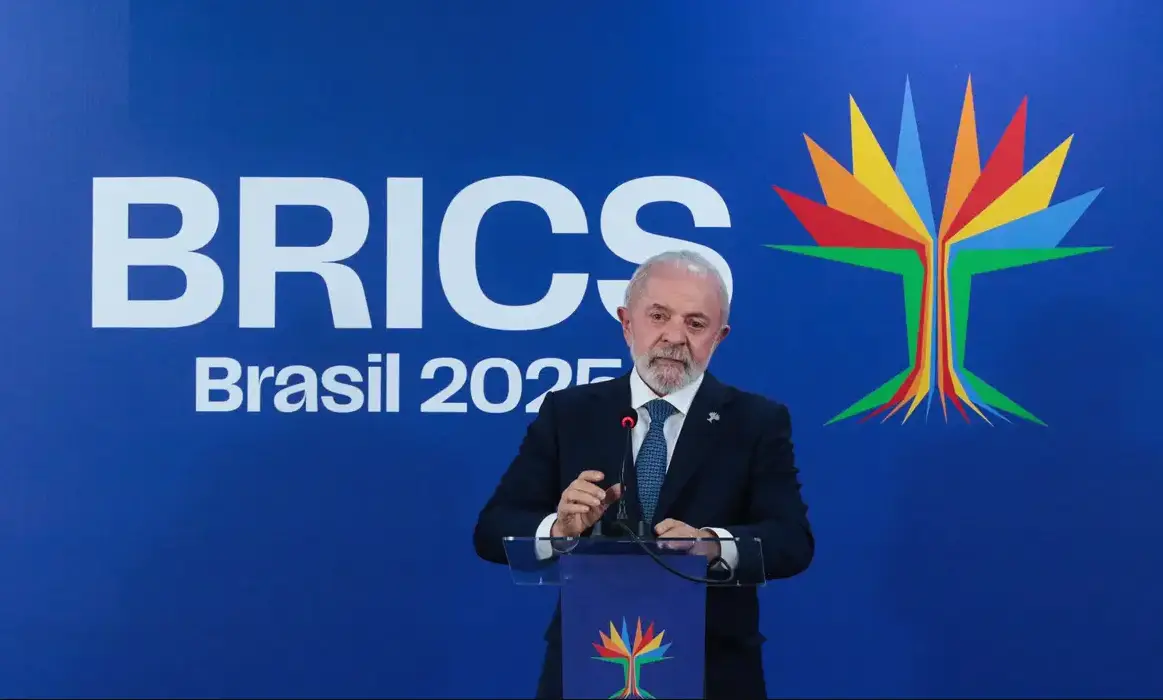On September 8, 2025, a virtual BRICS meeting, convened by President Luiz Inácio Lula da Silva, sought to consolidate the group’s positioning and reaffirm the guidelines established at the 17th Summit, held in Rio de Janeiro in July. At the meeting, Lula defended multilateralism, criticized the tariffs imposed by the United States, and emphasized the need to end unilateral practices that undermine international trade. Leaders or representatives from China, Egypt, Indonesia, Iran, Russia, South Africa, the United Arab Emirates, India, and Ethiopia participated in the session.
The July Summit, which preceded this virtual meeting, took place in a context of high geopolitical tension, marked by Israeli and U.S. attacks on Iran and the intensification of global economic disputes, fueled by Donald Trump’s tariff war and his “America First” policy. Despite these challenges, Brazil managed to drive forward a multilateral agenda focused on tackling global inequalities, securing the approval of four main documents: the final declaration and three thematic declarations in the areas of health, digital governance, and climate finance. These texts not only expand the group’s ambitions but also reaffirm Brazil’s commitment to an inclusive multilateralism centered on reducing inequalities.

The final declaration overcame significant resistance. Iran, even after being recently attacked, accepted a text defending the two-state solution for the Israeli-Palestinian conflict—a sign of diplomatic openness. South Africa, Egypt, and Ethiopia agreed to the explicit mention of Brazil and India in advocating for Security Council reform, while Africa was recognized as deserving greater representation. In the monetary sphere, the text avoided the proposal of a common currency—previously defended by Lula—but reaffirmed the advancement of trade in local currencies. With a cautious tone, the document avoided direct references to the United States, while signaling the intention to reduce dependence on the dollar.
This calibration is consistent with Brazil’s strategy of active non-alignment and was already evident in Lula’s opening speech at the Summit, which set the tone by evoking Bandung—a gesture laden with symbolism. In 2025, the 70th anniversary of the Bandung Conference, the founding milestone of the Non-Aligned Movement, is being commemorated. It was also under Brazil’s presidency that Indonesia—the historical epicenter of that conference—became a full BRICS member, reinforcing the commitment to a more plural international order, based on autonomy and cooperation among developing countries.
Brazil’s defense of multilateralism, however, does not mean uncritical adherence to existing institutions. On the contrary: the declaration repeatedly emphasizes the imperative of democratizing the UN, reforming the Bretton Woods institutions, and restoring the functioning of the WTO—and its dispute settlement mechanism, paralyzed for years by a U.S. veto. The word “democracy” appears seven times in the Declaration, suggesting that, contrary to what some analysts claim, BRICS does not ignore the issue but approaches it from its own perspective: the defense of a more democratic global governance that transcends the strictly national level.
This critique extends to the instrumentalization of multilateral agencies. One example is the International Atomic Energy Agency (IAEA), whose neutrality was questioned after Iran suspended its cooperation with the body, accusing it of facilitating Israeli attacks by sharing sensitive data. It is ironic, therefore, that BRICS—often described as a threat to the liberal order—has positioned itself as a defender of a rules-based order, provided those rules are built collectively and with democratic legitimacy.
The three thematic documents adopted during the Summit reinforce the group’s vision in favor of more inclusive governance, with joint solutions to global challenges. The BRICS Partnership for the Elimination of Socially Determined Diseases underscores the commitment to eradicating illnesses such as tuberculosis, recognizing that these disproportionately affect the most vulnerable populations. The text reaffirms the right to health and the need to strengthen national public systems, expand access to medicines and technologies, and foster scientific and technical cooperation among member countries.
In the Declaration on Global Governance of Artificial Intelligence, the countries recognize that AI has profound impacts on economies, societies, and democracy itself. They argue that AI governance must be based on the purposes and principles of the UN Charter, on human rights, privacy protection, inclusion, and diversity. They reject the concentration of power in the hands of large digital platforms and express concern about the reproduction of biases and inequalities in algorithmic systems, proposing a more ethical, accessible, and equitable model.
Meanwhile, the Framework Declaration on Climate Finance reaffirms the commitment to the Paris Agreement and the UN Framework Convention on Climate Change, advocating for the mobilization of new and additional climate finance on fair terms for developing countries. The group reiterated the principle of common but differentiated responsibilities and defended reforms in multilateral banks, a larger volume of financing, and the mobilization of private capital to secure resources for climate action in the Global South. Furthermore, the text acknowledges the New Development Bank (NDB) in its role of supporting sustainable development and climate action projects.
Despite this cautious diplomacy, the group continues to be perceived as a threat by hegemonic sectors. During the Summit, Trump reacted vehemently, threatening an additional 10% tariff on any country aligning with BRICS’ “anti-American policies” and declaring: “The dollar is king. We will keep it that way.” “Losing dollar hegemony would be like losing a war.” Trump interprets any movement toward monetary plurality as an attempt to dethrone the dollar—as an existential provocation. His actions, linking trade issues to unilateral sanctions and challenging national sovereignty, underscore the divergence of visions and the rising tensions shaping the international economic and political landscape.
This article is part of the collaboration between the Organization of Ibero-American States for Education, Science, and Culture (OEI) and Latinoamérica21 for the dissemination of the Voces de Mujeres Iberoamericanas platform. Learn about and join the platform HERE.
*Machine translation, proofread by Ricardo Aceves.














